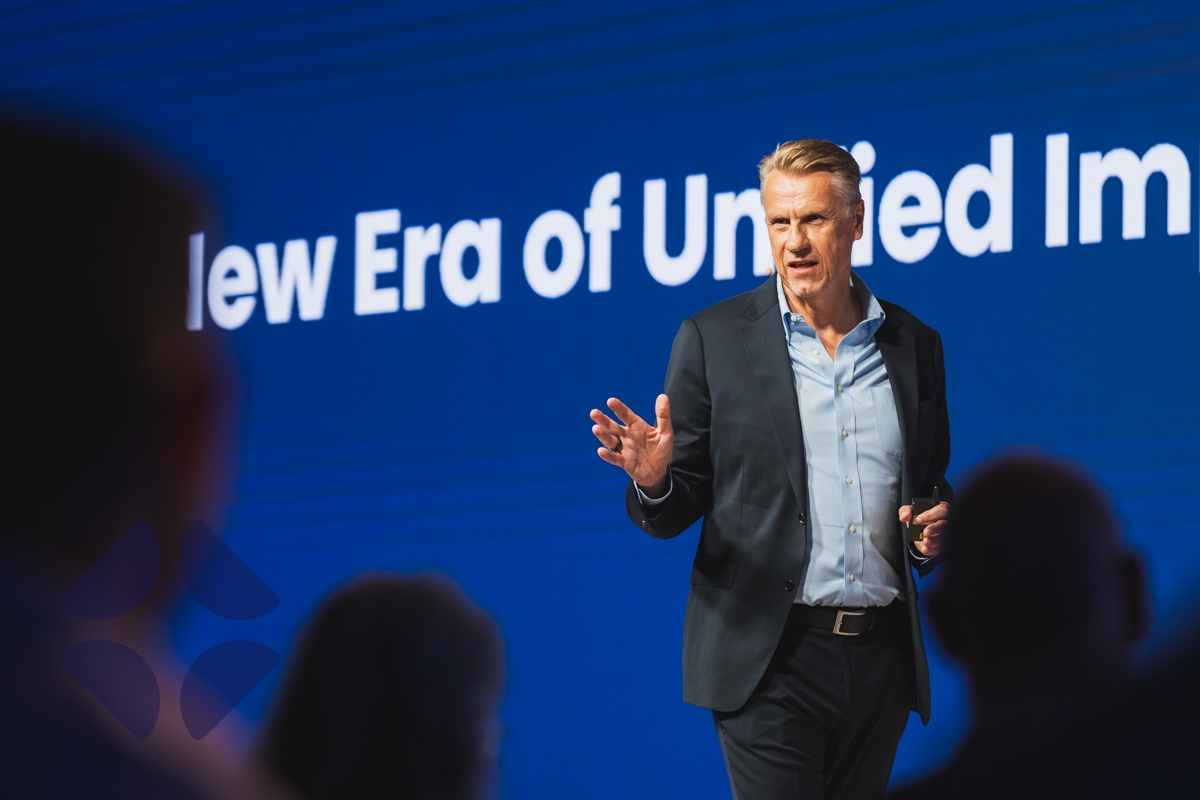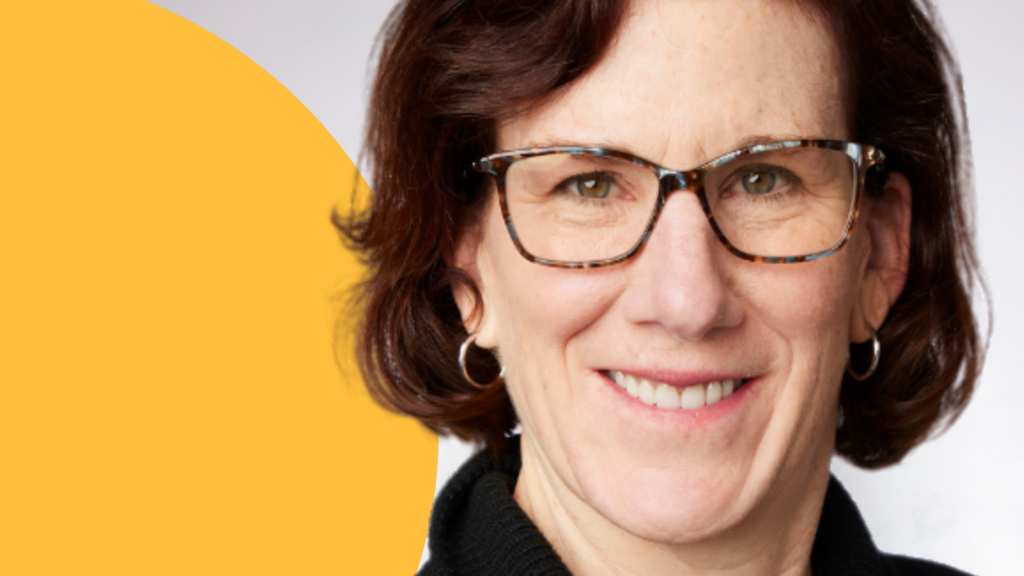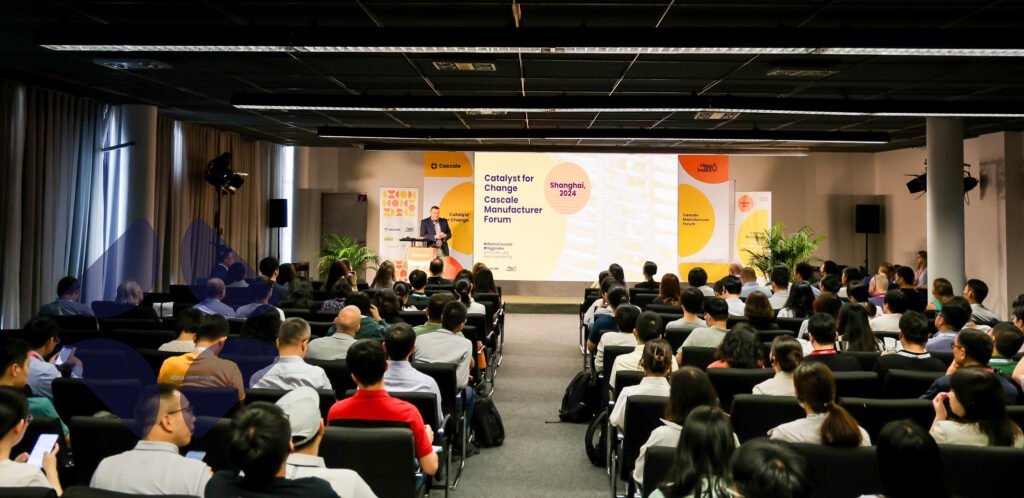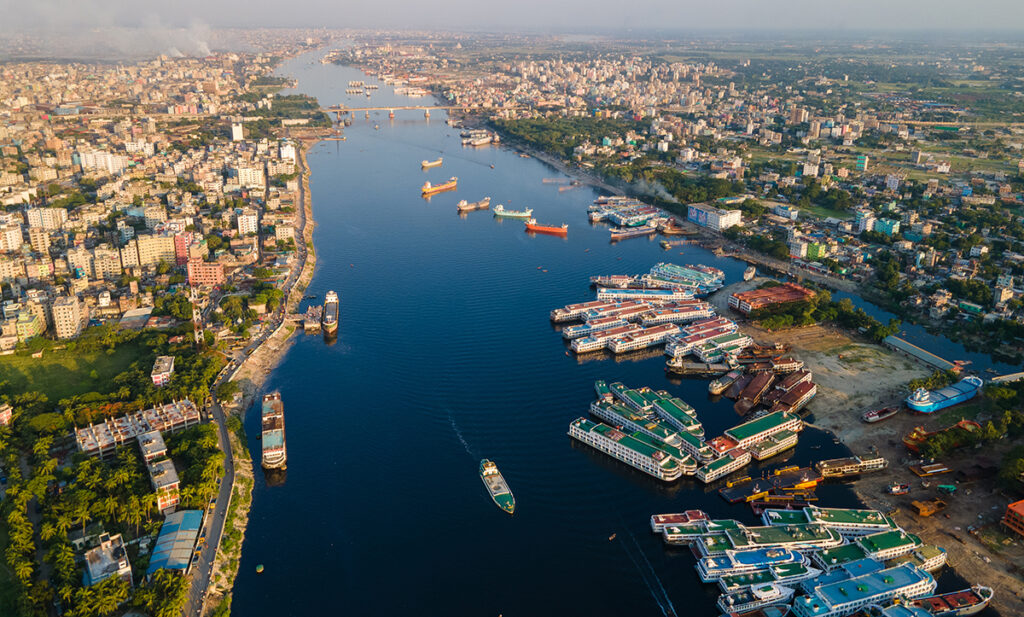Cascale: Why are you involved?
AT: One of the things I’ve realized throughout my career is that there’s just no way a brand acting on its own can create a lot of impactful change. We really need to be working in collaboration with multi-stakeholders. What I’m excited about at Cascale is the breadth of experience across the brand, retailer, manufacturer, and affiliate sides all working on practical approaches to change our industry.
Cascale: What has been your sustainability career trajectory?
AT: Early on in my career, I worked for the International Labour Organization, and prior to working full time for the ILO, I worked for the U.S. Council for International Business that represents U.S. companies in international organizations, including at the International Organization of Employers that represents the employers group at the ILO. In the formative years of my career, I learned a lot about social dialogue, conventions, and ratification of conventions, and the process building up to those agreements.
I sat in on hours of tripartite discussion, and I was just captivated by the complexity of it but also the power of divergent groups coming together for a common purpose.
Social dialogue and the power of multi-stakeholders working together has been a common theme throughout my career. I’ve also been involved in other multi-stakeholder initiatives in the apparel industry, specifically, the Fair Labor Association. I was on the board and very involved with the FLA for years. And I sit on a couple of other multi-stakeholder boards as well. And really, this comes back to my belief in the efficacy and power of groups that might, on the surface, have different opinions, but are ultimately trying to do the same thing: come together to try to create change.
Cascale: What is the most important conversation right now in the industry?
AT: I’ve been in this line of work for over 25 years, and there were times in my career that I felt this function was being treated as a “nice to have,” or outside of core business functions. That has really changed in the last five to seven years where companies, manufacturers, affiliates, civil society, and consumers all realize the centrality of sustainability.
For me, one of the sharp points is the climate crisis and the fact that so many individuals, who may not think about sustainability in their everyday lives, are seeing the impact of non-sustainable choices. That’s a real hot area – no pun intended.
That’s a real concern for all of us in the sustainability world. For me, equally important is this marrying of climate and social justice. We know that the most impacted by climate change are already the most vulnerable. Hundreds and thousands of workers across the globe are working in conditions that are dangerous to them from a health perspective because of global warming. These are things that we have to grapple through together to address, and that’s one of the reasons I really love the work of Cascale. The work isn’t siloed. We are trying to think through these issues holistically.
Cascale: How does everything come together in your current role at Target?
AT: Target, similar to other brands in Cascale, has a dedicated team that focuses on responsible sourcing and sustainability, and we work from issues of basic compliance. We call this our standards of vendor engagement. We work on taking collective audits that we’ve agreed on that are shared by other brands as well as remediation where we find issues.
Our goal is not to remove factories from the supply chain but really to see their performance elevated. The teams that I have the honor to lead across the globe are working alongside factory management on those aspirational goals, but also on the remediation of compliance to ensure that the factories are meeting those standards. Then we’re involved in a number of multi-stakeholder initiatives to move beyond basic compliance in areas of worker well-being, climate change, conversion to renewable energy, the setting of science-based targets, etc. As you know, I’m involved personally on the Cascale Board, but my team is equally involved in many of the working groups of Cascale and within other organizations that are like-minded and trying to also create change in our industry.
Cascale: What is the value in being a Cascale member?
AT: One of the great things about Cascale is the many opportunities that a member has to be involved, from the Annual Meeting to the Manufacturer Forums that are held around the world to various working groups that one can opt into, and that’s where we see the development of the Higg Index tools.
Cascale isn’t just an aspirational platform, it’s coordination across multi-stakeholder groups to implement tools and measure progress. I’m talking about things that we’ve adopted broadly. For example, the Higg Facility Environmental Module, Higg FEM 4.0, recently rolled out. But there are a number of other Higg Index tools that help us to quantify the impact in our factories. Our teams are working alongside other brands, affiliates, and manufacturers to develop those tools and then to drive their adoption throughout the supply chain. That, I think, is hard work. It’s not something that’s done quickly, but it’s the really important work that we need to collectively do.
Cascale: How do you sustain the work and remain optimistic?
AT: I think that at times it’s hard to be optimistic, when we see the world changing around us and question whether we’re doing enough. We talked about tools, and while I believe in tools, our whole reason for being can’t just be to develop tools. We’ve got to create impact, especially now.
Despite the challenges at hand, one reason I remain optimistic is that there’s more focus on these issues now – not just from a group of sustainability practitioners but across businesses. We can have these discussions deeply inside the business about choices that we need to make.
I have a lot of confidence in the next generation. They keep me optimistic to address the challenges we face, and I’m always excited when I run into students who are interested in environmental sciences. When I was their age, that conversation was very rare, and now there’s just such a hunger and appetite for it. At the same time, I would say this is hard work, and you have to be committed for the long run. There’s no quick and easy fix.
Cascale: What’s one piece of advice you have for students and aspiring sustainability professionals?
AT: I’ve received so much advice and probably given too much advice at this point, but the one piece of advice that really resonates for me right now – particularly as we’re in a world that seems to be increasingly divided – is just to continue to be curious. I think that’s a really great adage to live by. It’s easy to go into a discussion and prioritize my interests as a company or as a brand or retailer group, but I think the challenge here is to remain curious and consider the challenges of my manufacturing partners to understand their vision. Replacing judgment and confidence with curiosity is a great opening stance to be able to contribute effectively to a multi-stakeholder conversation.
Cascale: What is the future of Cascale?
AT: I would say creating sustainable impact. It’s easy to do something once. It’s easy to do a pilot here and there, and we often see groups spring up that do some wonderful pilots that can create small pockets of change, but we’re looking for scalable solutions across a very broad supply chain, and I think Cascale is best positioned to identify those solutions and to canvas and propel action across the industry. That’s what I’m thinking about when I think about the future of Cascale.
Cascale: Anything else to add?
AT: As is with almost anything in life, you get out of it, what you put into it. One of the things I’ve noticed while being on the board is there are a few very active representatives of each group, and then there’s a long tail of members that are not so active. My message would be to take a step towards more engagement and activity, and that could look a lot of different ways. It doesn’t mean joining every committee or committing to every meeting, but if you can add a little bit more of your personal time and vision and energy, we really need that as a multi-stakeholder initiative. We don’t want to be a club of a few, we want to be a coalition of many.






